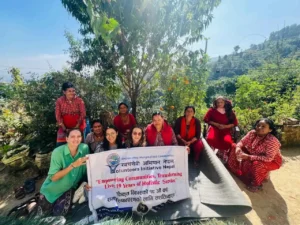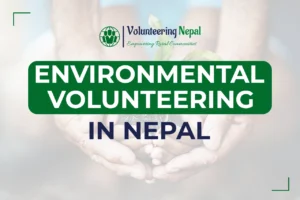
Volunteer to Teach English in Nepal: Everything You Need to Know
Teach English in Nepal and experience the rich culture and stunning landscapes while making a real impact. Many rural communities lack access to quality English education, and volunteer programs often send teachers to these underserved areas. Opportunities range from short-term projects to long-term placements in schools and community centers. While challenges include limited resources and cultural adjustments, the rewards are immense building connections, helping students thrive, and gaining a deeper understanding of Nepalese life.
Whether you’re a certified teacher or simply passionate about helping, there are many ways to teach English and contribute to lasting change.
Why Teach English in Nepal?
With the growing demand for English in schools, tourism, and business, teachers help students access better opportunities and connect with the global community.
The Demand for English in Nepal
Especially in rural and remote areas, the Nepal’s education system faces the demand for demand of English teachers. More than 80% of students from across the country express their desire to learn English, which is motivated by the desire to improve their English language skills for a good job probability.
Specifically in areas such as tourism, business and international development, English expertise has become a major factor for better employment opportunities.
In addition, there is a lack of skilled teachers in many schools across Nepal, leading to fewer resources and crowded classrooms. Since there is a lack, we need immediate volunteers to help and ensure local students succeed.
English Skills Boost Local Economies
Improving their English benefits the local economy. English helps trade, explore new nations, and learn various languages. The ability to communicate effectively in English opens doors to teaching jobs, language courses, and private schools that can further strengthen Nepal’s position in the global economy.
The efforts of volunteers in the country can help local students get better jobs and encourage social and economic growth.
Benefits for Volunteers
Teaching English in Nepal is not just beneficial for the local community; it’s a rewarding experience for volunteers as well.
- Improve Language and Teaching Skills: Teaching in Nepal allows volunteers to hone their English teaching abilities. Completing 120-hour TEFL or 150-hour TEFL courses before volunteering can also help you qualify for various English teaching jobs.
- Experience Nepal’s Culture Firsthand: From the stunning landscapes of the Himalayan Mountains to the diverse religious practices of Hinduism and Buddhism, volunteering Nepal provides a chance to experience daily life in ways few other places can match.
- Make a Meaningful Impact: Volunteer teachers in Nepal help bridge the language barriers between locals and global opportunities. The effects can be permanent since better English skills can help students overcome poverty and reach more opportunities in life.
Jerome Gicquel, “Teaching English in a monastery is a really nice experience. We can learn a lot about Nepalese and Tibetan culture and about Buddhism also. The relationship with the kids become strong, and I learned that kindness and respect can go across borders.”
How to Find the Right Program
Finding the right volunteer program begins with knowing your goals, skills, and interests. If you want to work in healthcare or support community projects, understand the types of available voluntary programs that help you choose the best rights for your journey.
Types of Volunteer Programs
When considering how to volunteer to teach English in Nepal, various programs are available, each with benefits and challenges.
- NGO-based projects: These programs are often designed to work with deprived communities, providing opportunities for education and development. NGOs can offer comprehensive support, including housing and sometimes food.
- University-Bacardi Initiative: Some universities partner with local schools in Nepal and provide education programs. These programs provide more structured training but may have strict requirements for volunteers.
- Independent Volunteer Groups: These programs are usually more flexible and allow volunteers to be selected from different places in Nepal. They always meet volunteers from various experience levels, from first-time to experienced teachers.
Key Factors to Consider
Before you choose a volunteer program, make sure it has a good reputation and guarantees safety: Many volunteers choose a program that is considered praise and successful. It is always necessary to confirm the safety.
- Cost and incorporation costs: Be aware of the expenses, including program fees. Many programs provide convenience, but costs like food and local travel can be extra.
- Support and training provided: Selection of programs that provide adequate training and support on land, such as cultural immersion sessions, language lessons, and education tips.
Expert Advice
When selecting your volunteer program, Lisa Chain from IVHQ recommends ensuring it has a concrete objective and good support. Working as a teacher in Nepal is not always easy, but having proper assistance improves everything.
Preparing to Volunteer
The first step in preparing to volunteer is to learn what qualifications are required for the job. Naturally, some programs call for special skills; even so, numerous of these are offered only to people who are excited, committed, and willing to learn. When you are adequately prepared, your volunteering will be rewarding and valuable.
Qualifications Needed
Most volunteer programs do not require formal teaching qualifications, but some will expect a basic understanding of English and a willingness to learn. Some programs may require previous teaching experience, while others welcome non-native speakers passionate about teaching.
Required Documentation
- Valid Passport: Ensure your passport is up-to-date for international travel.
- Application Forms: Fill out any necessary forms and submit the required documents.
- Possible Background Checks: Some programs require criminal background checks to ensure the safety of students.
Practical Tips for Packing
- Lightweight Clothes: Prepare for both hot and cool weather. Nepal’s low-lying hills and mountainous terrain can have varied climates.
- Teaching Supplies: Bring low-cost teaching materials such as notebooks, pens, and flashcards. These items can be hard to find in rural areas.
- Personal Items and Medicines: Pack any personal items or medicines you need in Nepal.
Living and Teaching in Nepal
Being in Nepal as a teacher means experiencing adventure and fulfilling a purpose. You can expect to be welcomed warmly and live and experience a slower way of life. Even if classrooms do not have all the tools, the student’s enthusiasm and diverse backgrounds make teaching there special and memorable.
What You Should Know
Anyone living in Nepal should be open-minded and ready for new experiences. In rural areas, you could live in simple housing that offers only the essentials, such as a volunteer house or a one-bedroom apartment. Although comforts are not always available, the chance to meet people from different cultures makes volunteering in Nepal special.
- Cultural immersion: The cultural heritage of Nepal is rich and diverse, from the temples of Kathmandu to the peaceful atmosphere of Buddhist monasteries across the country.
- Daily Life: The daily life in Nepal varies between the capital’s disturbing streets and rural life. Some schools may represent limited resource challenges, but the creativity and elasticity of teachers and students often eliminate this.
Teaching Tips
- Keep Lessons Engaging: Use visual aids, stories, and interactive activities to maintain students’ interest. Games are particularly effective in keeping younger students engaged.
- Be Patient and Respectful: Understanding the language barriers and cultural differences will significantly impact your success as a teacher. Take the time to learn about Nepalese culture and respect local customs.
Kristian Kusenda, “Teaching English in Drikung monastery was a great experience both in teaching and spiritual way. Definitely it’s one of the best ways to learn more about Buddhism and life in monastery. The atmosphere there is very different from average western life style and mind-healing. It’s also a good way to see if teaching is something for you.”
Making the Most of Your Experience
Making the most of your experience in Nepal involves interacting with students, other volunteers, and locals. You should immerse yourself in the community by learning some basic phrases in Nepali, attending cultural functions, etc. These relationships improve your experience and create unforgettable moments beyond the classroom.
Building Connections
Participating in a new culture allows you to establish great connections. Whether teaching in the monasteries of Nepal or working with students in urban centers, interacting with local teachers and students is a wonderful experience. Attend community functions, join language courses, and take every chance to deepen your understanding of the culture.
Skills Gained
The skills you develop while volunteering can enhance your personal and professional life. These include:
- Cross-cultural Communication: Understanding different perspectives and adapting your teaching style to fit diverse student needs.
- Problem-Solving and Adaptability: Working in environments with limited resources requires creative thinking and flexibility.
- Language Learning: While teaching English, you’ll likely pick up some Nepalese or Hindi, improving your ability to communicate with local communities.
Staying Safe and Healthy
Ensure you follow health guidelines by receiving vaccinations before traveling to Nepal. Be sure to respect local customs, including cultural practices like Buddhist rituals and the country’s unique approach to hospitality.
Conclusion
Nepal gives a profound opportunity to make a permanent difference in students’ lives by getting a volunteer and valuable education experience to teach English. From the incredible landscapes of the Himalayan mountains to vibrant Nepali culture, this experience promises personal and professional development. Disruption of education in remote villages or urban centers: Your efforts can positively affect the local community by increasing English skills and employment and bridging global communication.
Apply now or contact support@vin.org.np to explore volunteer opportunities with Volunteering Nepal or other trusted Nepal NGOs. Your journey to Teach English in Nepal can spark lifelong memories and improve the quality of life for needy people.
Frequently Asked Questions (FAQs)
1. Do I need a teaching degree to volunteer to teach English in Nepal?
No, you don’t need a formal teaching degree to volunteer in Nepal, but most programs will require a basic understanding of English and a willingness to learn. However, completing a 120-hour or 150-hour TEFL Certification can make you a more attractive candidate, especially if you seek more structured teaching roles.
2. How much do English teachers get paid in Nepal?
While paid teaching jobs exist in Nepal, most volunteer programs do not offer a salary. If you are looking for a paid teaching position, searching for English teaching jobs in language schools or private schools in urban areas is best. International schools in major cities like Kathmandu or Pokhara may offer competitive salaries.
3. Can I teach English in Nepal as a non-native English speaker?
Yes, you can teach English in Nepal as a non-native English speaker. Many programs prioritize passion for teaching, commitment, and the ability to engage with students rather than solely focusing on your native language status.
4. What are the living arrangements like for volunteers?
In cities like Kathmandu, Pokhara, or other urban centers, volunteers may have the option of renting a quiet area outside the street apartment part or disturbing streets in the city center. While housing is usually fundamental, it provides a unique opportunity to experience Nepal’s lifestyle.
5. Is Nepal safe for volunteers?
It is broadly agreed that Nepal is safe for volunteers; however, as is the case with any form of international travel, some level of caution should always be taken. Try to steer clear of dangerous areas, avoid losing essential items, and listen to local recommendations on safety. Remember to consult the program provider for advice on local security measures and remain informed on changing travel restrictions.
6. What is the best time of the year to volunteer in Nepal?
The best times of year for volunteering in Nepal are spring (March to May) and autumn (September to November). These months offer optimal weather and visibility, which allows for trekking and tourism. The view of the Himalayan range is breathtaking during these periods.
7. How can I create the most cultural experience in Nepal?
Interacting with the local people and students is crucial to maximizing cultural immersion in Nepal. Take part in local festivals, go to the Buddhist stupas, and hike or visit the country’s cultural attractions.
8. What are the challenges of teaching English in Nepal?
Teaching English in Nepal can come with many challenges. Limited resources, large class sizes, and sometimes inadequate classroom content make lessons challenging. Also, language barriers can arise, especially in rural areas, where students are approached in English outside the classroom.



